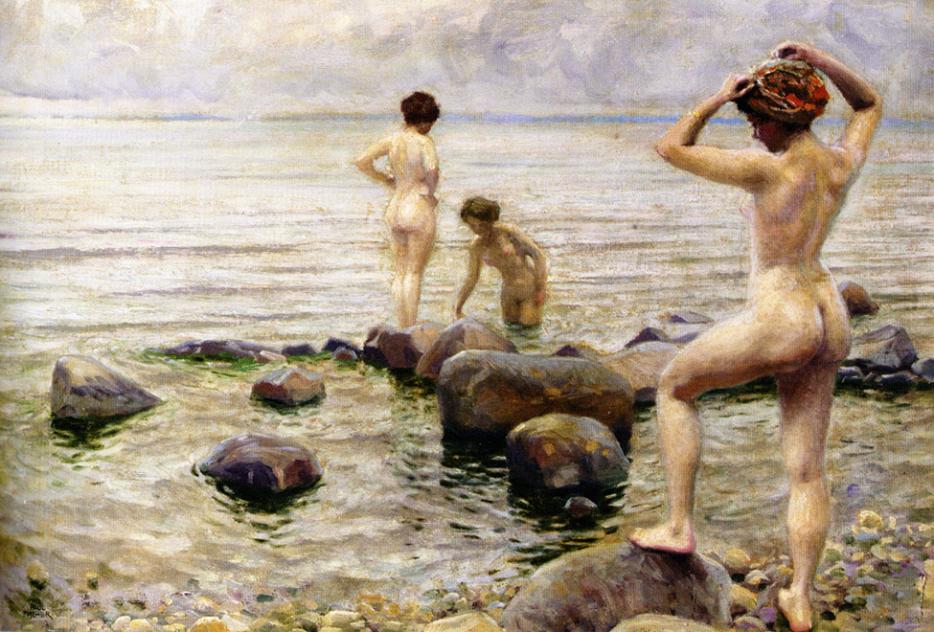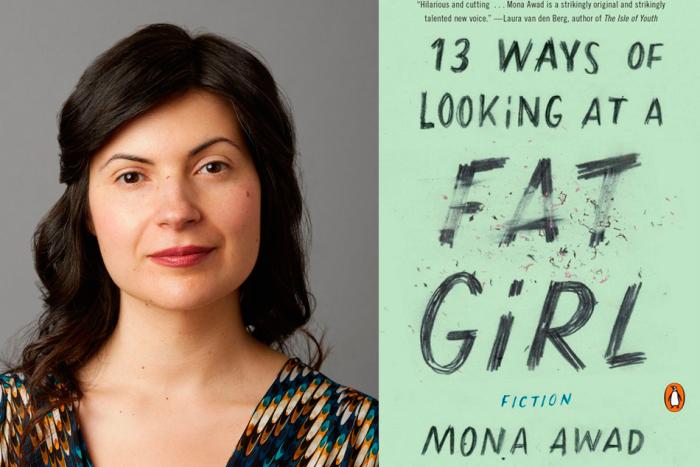Water offers a screen in its still reflection, a vessel to consume the trees and the rocks and the birds and the black mold that grows around us on the bathroom tiles. Humans are transfixed by water’s stillness, and by its turbulence, as a sublime solace. We find comfort in the rare liquid as a stabilizer: as our bodies enter it, we are fetal, we are washed, we are fine. Yet, fear is enacted by the waves of a hurricane, outlines of lemon sharks swimming behind them.
Sitting with one’s body submerged, chin at water level, is a waiting game. The swimmers in the slow lane use it as a means to escape death; algae microbes use it as a way to eat and stay alive. I use it in the same way I use Saturday morning sleep-ins, Snapchat procrastination, or alcohol: as a way to enter that liminal grey space where I can live in the present and quiet the exasperating voice in my head.
*
A knock.
“He’s calling from his dad’s house.”
I am sitting in the bathtub I was raised in, my face a small island. Mulder and Scully discuss a sewer monster from their perch on the toilet seat. I have spent many pruned hours here.
“Are you okay?” she asks.
“Yes.” My automatic answer.
“Did you hear me? He’s calling you from his dad’s home phone. It says—”
“Don’t answer it.”
I have filled this tub with tears.
*
Water flows freely in many of Canada’s homes, the soft plunking from the tap by now an ambient sound. As a result, we bathe a lot. Daily. Punctuated by more specific instinctual instances, brought forth by feelings of tightness, dryness, or tinglings.
What is our obsession with cleanliness? What does bathing offer us? We feel clean, fresh, unsweaty. We smell less offensive, which impresses our bosses and lovers, and we look like we have money. Historically, good everyday hygiene has been associated with the prevention of disease, a fact now markedly rejected by health scientists, who say overuse of anti-bacterial products is giving birth to superbacteria and over-cleaning wreaks havoc on our microbiota. Much to the chagrin of major beauty and hygiene product conglomerates, our bodies are excellent at self-cleaning.
In centuries past, bathing was considered an indulgence, as heated water and soap were difficult to come by. During the time of the Black Death, dirt was worn as a badge, a protective layer against the outside pestilence.
*
Red wine, and watching two rock climbers fuck, harnessed, on the side of a cliff. This is the porn that she has found to show me this time, a habitual game we play to find the world’s strangest.
“I would totally do this,” she says, laughing, swishing water around with her body and raising her glass a bit so as not to spill the scarlet liquid into the tub. She succeeds nonetheless.
“Imagine they fell,” I remark, kneeled beside her on the bath mat. “Imagine they fell while he was still inside her.”
*
I shower so infrequently now that I have forgotten the instinct. I was once enslaved by the daily regimen of standing under running water for 10 minutes a day, a loved indicator of wellness, happiness. Most lists of depression symptoms include a mention of “poor hygiene,” an assessment I expect involves doctor’s notes that say “greasy hair and yellowed teeth.” I have both, as do millions, likely those of us for whom access to manicures and regular haircuts is an extravagance.
When we fail to acknowledge our instincts, we become tense. My instincts told me that bathing less would free me. In spending less time with water and soap and elixirs and lotions, I spend less time thinking of my undesirability. Prodding myself in the mirror disgracefully occurs less often. Bad thoughts still exist, but this small power helps me feel like I’m making a difference.
At the very least, in the impending water war, I will be one of the resourceful ones.
Our baths feel more like the definition of a whore’s bath to me.
I now partake in a twice-weekly bath-tub ritual in which I stew in my filth, and consider my time. I may be mentally ill, but I’m finally stable. This way of bathing was my my first action against my former, unhappy self, the miserable self who did what was expected of me. Bathing less was my first rebellion.
How can something as trivial as How can something as trivial as one's hygiene rituals have such an impact on how happy or successful others perceive you to be?
I was not always like this.
Years ago, when I still showered daily, B and I rented an apartment that had water-related flaws. The pipes would often spew nothing—not a drop—at inopportune times. Our home quickly became a place of great stress, swathed in piles of dirty plates and sweaty laundry. We complained incessantly about our violated basic right as humans—the right to be beneath water. When it flowed at unpopular times late at night or in the early afternoons, spilling on the floor became our terror; one small mess would cause water to leak down through the potlights in our neighbour’s kitchen, below. My anxiety manifested mostly as a refusal to bathe until the very last moment it was required. When the problem was fixed, however, I did not return to my daily habit.
I no longer felt obligated to rid myself of my “dirty” skin through maniacal upkeep.
*
My pussy, surrounding his mouth and nose, encourages a sort-of drowning. As I push his head down under the water, I worry for a second that he will find his death here. He is 12 years older than me. Our love has been asserted, but he has said he will never have children. Never bathe children.
He once taught me the meaning of “whore’s bath.”
“You’ve never heard of this? It’s when a prostitute doesn’t shower. She douses herself in perfume instead.”
He comes up for breath, swinging wildly, dick in hand, coming.
“Fuck you!!!!”
“This is what you wanted, you asshole!” I yell.
Our baths feel more like the definition of a whore’s bath to me.
*
My current routine relies heavily on products like facial wipes and dry shampoo. In the mornings, I wash my face and hands, pits, vagina and repeat.
On non-bathing days, I hope my hair stays dry—a constant fear for the oppressed curly-haired female. I find a power in rejecting the constant blowdry upkeep, in tucking my hair up on top of my head, peach fuzz swaying around my temples.
It must be said: I do not perturb people in my presence with my smell. My new stench is powdery and soft and vaguely floral, with an inevitable musky undertone. Like any great perfumer knows, the best scents begin with a base of the unpleasant.






